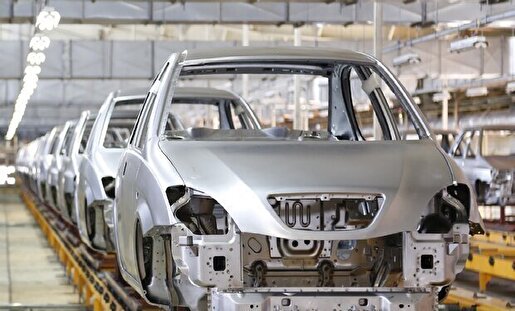New Shock to Iran’s Auto Industry: Supply Chain Emerges as Main Casualty of Sanctions
 Late last night, the UN Security Council, with nine votes in favor, formally announced the reimposition of sanctions on Iran effective October 6. The decision is poised to ripple across the Iranian economy, with the automotive sector among the most vulnerable industries.
Late last night, the UN Security Council, with nine votes in favor, formally announced the reimposition of sanctions on Iran effective October 6. The decision is poised to ripple across the Iranian economy, with the automotive sector among the most vulnerable industries.
Analysts warn that the most immediate impact will be felt in parts supply and technology imports—particularly in advanced electronic components such as ECUs, sensors, safety modules, and powertrain systems. Automakers worldwide rely heavily on such technologies, and renewed sanctions could force foreign companies to halt sales or suspend technology transfer, leaving domestic production lines short of critical inputs. Similar disruptions were witnessed in the past when firms like Peugeot and Renault scaled back or cut ties under earlier sanctions.
International financing and foreign investment represent another critical weak spot. Modernization of production lines, adoption of new technologies, and investment in R&D all require external funding—resources that sanctions will restrict by blocking access to loans, insurance, and cross-border payments. Without this support, introducing new fuel technologies or upgrading production capacity will become increasingly difficult.
The impact will extend to imported and semi-knockdown (SKD) assembly models that rely on foreign-sourced parts. As restrictions choke off access to key components, certain models may face reduced output or complete discontinuation. Exports, too, are at risk, as restrictions on overseas sales could discourage international buyers from dealing with Iranian manufacturers.
Domestically, the market is bracing for higher prices driven by currency fluctuations, rising logistics costs, and shrinking consumer purchasing power. Imports of specialized steel, polymers, paints, plastics, tires, and production machinery—all of which remain heavily dependent on foreign supply—are also threatened.
Industry experts caution that sanctions will quickly disrupt banking channels, shipping insurance, and trade flows, particularly for vital electronic components such as ECUs, ABS/airbag modules, and semiconductor chips. This could fuel a sharp rise in prices and create shortages, especially in parts that lack viable local substitutes. Small domestic suppliers with limited inventories are expected to be the most vulnerable, potentially forcing temporary shutdowns at auto plants.
In the longer term, the reimposition of sanctions could trigger a black market for scarce spare parts, with steep price hikes hitting sensitive imports such as fuel injectors, turbochargers, oxygen sensors, ignition coils, automatic transmission modules, and electronic controllers. Used car prices are also likely to fluctuate, with rarer models appreciating sharply while simpler vehicles see weaker demand.
Ultimately, the reinstated sanctions are forecast to inflict their heaviest blow on imported parts supply. Given the automotive industry’s deep reliance on modern electronics and foreign technology, sustaining production under renewed restrictions poses a formidable challenge.


